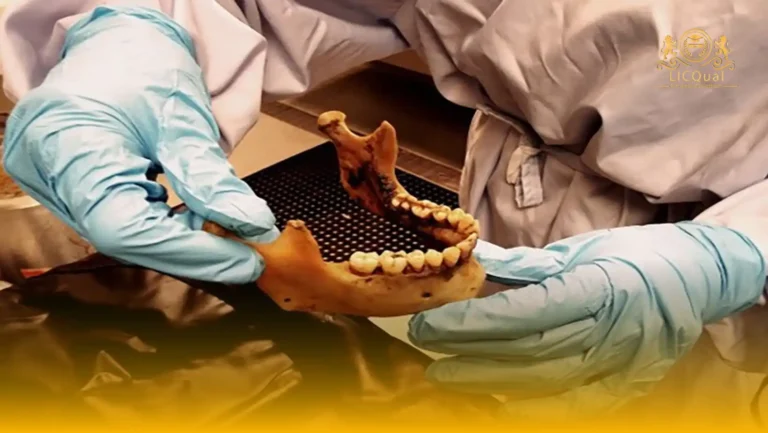The LICQual UK Level 3 Diploma in Ship Crew Management is a UK-accredited qualification designed for individuals who want to build a strong foundation in managing shipboard personnel and maritime operations. This internationally recognized diploma equips learners with the essential knowledge and practical skills required to oversee crew welfare, safety, and performance in the global shipping industry.
This Level 3 Ship Crew Management Diploma UK is ideal for those starting their maritime careers, as well as professionals seeking to formalize their experience with a recognized qualification. The program introduces learners to the fundamentals of crew recruitment, training, and retention, while also covering international maritime regulations, safety compliance, and effective human resource practices onboard. By combining theory with real-world applications, the course ensures graduates are prepared for the dynamic challenges of ship crew management.
Employers across the shipping and logistics sector value the UK-accredited Ship Crew Management Diploma because it demonstrates competence in managing diverse teams, ensuring compliance with international standards, and promoting a safe and efficient working environment. Learners gain a solid understanding of crew scheduling, welfare management, and communication strategies that are vital for smooth ship operations.
The Diploma in Ship Crew Management UK also emphasizes leadership and problem-solving skills, preparing learners to handle the complexities of multicultural crew environments. With a focus on both technical and interpersonal aspects of crew management, this qualification provides a balanced approach that aligns with global maritime industry expectations.
If you are looking for a career-focused, internationally recognized qualification that opens doors to opportunities in shipping companies, crew management agencies, and maritime operations worldwide, the LICQual UK Level 3 Diploma in Ship Crew Management is the perfect choice.
Course Overview
Qualification Title
LICQual UK Level 3 Diploma in Ship Crew Management
Total Units
6
Total Credits
60
GLH
240
Qualification #
LICQ2201301
Qualification Specification
To enroll in the LICQual UK Level 3 Diploma in Ship Crew Management, applicants must meet the following criteria:
|
Qualification# |
Unit Title |
Credits |
GLH |
|---|---|---|---|
|
LICQ2201301-1 |
Introduction to Ship Crew Management |
10 |
40 |
|
LICQ2201301-2 |
Maritime Safety and Crew Welfare |
10 |
40 |
|
LICQ2201301-3 |
Crew Recruitment and Training Fundamentals |
10 |
40 |
|
LICQ22013014 |
Shipboard Communication and Teamwork |
10 |
40 |
|
LICQ2201301-5 |
Crew Scheduling and Resource Allocation |
10 |
40 |
|
LICQ2201301-6 |
Professional Development in Crew Management |
10 |
40 |
By the end of this course, learners will be able to:
1. Introduction to Ship Crew Management
By the end of this unit, learners will be able to:
- Explain the role and responsibilities of ship crew management in global shipping.
- Identify the functions of crew managers in recruitment, welfare, and compliance.
- Describe the organizational structure of crew management companies.
- Recognize international conventions that shape crew management practices.
- Apply foundational knowledge to real-world ship crew management scenarios.
- Demonstrate awareness of career pathways in maritime crew management.
2. Maritime Safety and Crew Welfare
By the end of this unit, learners will be able to:
- Demonstrate knowledge of international maritime safety conventions (SOLAS, ISM Code).
- Apply crew welfare practices in line with the Maritime Labour Convention (MLC 2006).
- Conduct basic risk assessments to ensure safe shipboard environments.
- Explain emergency response procedures and crew health management.
- Evaluate the importance of safety culture and welfare in maritime operations.
- Recommend improvements to enhance crew wellbeing and compliance.
3. Crew Recruitment and Training Fundamentals
By the end of this unit, learners will be able to:
- Explain the process of crew recruitment, selection, and onboarding.
- Apply basic training principles aligned with STCW requirements.
- Evaluate the importance of competency standards in crew performance.
- Demonstrate knowledge of international crew certification requirements.
- Recommend strategies for effective crew retention and motivation.
- Recognize the role of training in building a skilled and compliant workforce.
4. Shipboard Communication and Teamwork
By the end of this unit, learners will be able to:
- Demonstrate effective communication skills in multicultural shipboard environments.
- Apply teamwork principles to improve ship operations and crew performance.
- Recognize barriers to communication and propose solutions.
- Evaluate the role of leadership in building cohesive shipboard teams.
- Apply conflict resolution strategies to maintain harmony onboard.
- Promote collaboration and respect in diverse maritime workplaces.
5. Crew Scheduling and Resource Allocation
By the end of this unit, learners will be able to:
- Plan and manage crew duty rosters in compliance with international regulations.
- Apply resource allocation strategies to optimize shipboard operations.
- Evaluate the impact of poor scheduling on safety and efficiency.
- Demonstrate knowledge of rest hours and fatigue management standards.
- Recommend improvements to enhance crew productivity and compliance.
- Integrate scheduling practices with international maritime labour laws.
6. Professional Development in Crew Management
By the end of this unit, learners will be able to:
- Demonstrate professional skills required for career growth in crew management.
- Apply problem-solving and decision-making skills to maritime HR challenges.
- Develop personal development plans aligned with international maritime standards.
- Recognize the importance of ethics and professionalism in crew management.
- Apply transferable skills such as leadership, communication, and adaptability.
The LICQual UK Level 3 Diploma in Ship Crew Management is designed for individuals who want to start or strengthen their careers in the maritime and shipping industry. This UK-accredited diploma is ideal for beginners, seafarers, and professionals seeking to formalize their skills in crew management, safety, and compliance. Whether you are aiming to work in crew recruitment, welfare, or shipboard operations, this qualification provides the foundation to succeed in global shipping.
1. Aspiring Maritime Professionals
- Individuals seeking entry-level roles in ship crew management and operations.
- Learners who want a UK-accredited qualification to start their maritime career.
- Students aiming to understand the fundamentals of crew welfare and compliance.
- Candidates preparing for shipboard roles in logistics and crew coordination.
- Beginners looking for a globally recognized maritime qualification.
2. Seafarers and Shipboard Crew Members
- Current seafarers who want to enhance their knowledge of crew management.
- Crew members aiming to progress into supervisory or management positions.
- Individuals seeking structured training in safety and welfare practices.
- Workers looking to align with international maritime labour standards.
- Professionals preparing for higher-level maritime qualifications.
3. Crew Recruitment and Training Staff
- Professionals involved in crew recruitment, onboarding, and training.
- Individuals aiming to strengthen knowledge of STCW and certification standards.
- Candidates preparing for roles in crew selection and competency development.
- Workers seeking to improve retention and motivation strategies.
- Staff looking to formalize HR practices in maritime operations.
4. Maritime Safety and Welfare Officers
- Safety officers responsible for implementing international safety standards.
- Professionals aiming to specialize in crew welfare and compliance with MLC 2006.
- Individuals preparing for roles in shipboard risk assessment and safety audits.
- Candidates seeking to promote a strong safety culture onboard.
- Workers committed to improving crew wellbeing and operational safety.
5. Shipping and Logistics Industry Workers
- Employees in shipping companies seeking to expand into crew management.
- Professionals aiming to understand shipboard logistics and crew scheduling.
- Individuals preparing for roles in maritime HR and operations.
- Workers looking to strengthen knowledge of international compliance.
- Candidates targeting career progression in shipping and logistics.
6. Career Changers and New Entrants
- Individuals from other industries looking to enter maritime operations.
- Learners seeking a UK-accredited diploma to start a new career path.
- Candidates interested in ship crew management, welfare, and logistics.
- Professionals aiming to diversify their career into the shipping sector.
- Students seeking a practical, career-focused maritime qualification.
7. International Learners and Global Workforce
- Students worldwide seeking a UK-accredited ship crew management diploma.
- Learners aiming for international career opportunities in shipping.
- Professionals looking for a qualification recognized across global markets.
- Candidates preparing for maritime roles in Europe, Asia, or the Middle East.
- Workers seeking compliance-focused training for global shipping operations.
Assessment and Verification
All units within this qualification are subject to internal assessment by the approved centre and external verification by LICQual. The qualification follows a criterion-referenced assessment approach, ensuring that learners meet all specified learning outcomes.
To achieve a ‘Pass’ in any unit, learners must provide valid, sufficient, and authentic evidence demonstrating their attainment of all learning outcomes and compliance with the prescribed assessment criteria. The Assessor is responsible for evaluating the evidence and determining whether the learner has successfully met the required standards.
Assessors must maintain a clear and comprehensive audit trail, documenting the basis for their assessment decisions to ensure transparency, consistency, and compliance with quality assurance requirements.







